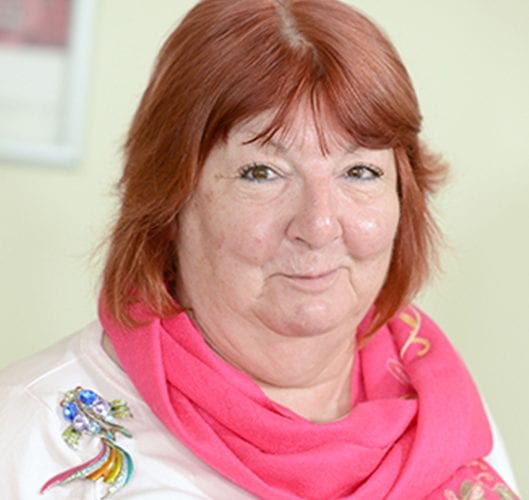
After losing a loved one in a fatal accident, you don’t only have emotional loss to grapple with. There’s also the potential financial strain. While no amount of compensation will bring them back, it can help reduce financial pressures. We can help you not only claim compensation, but also help you access any therapy or specialist services you might need.
Have You Lost a Loved One In a Fatal Accident?
If you have suffered the loss of a loved one, we could help you start a claim for bereavement damages. 0333 3580 393What is a Fatal Accident?
A fatal accident is where an individual dies as a result of someone else’s negligence, recklessness, or intentional harm. The term ‘someone else’, could be a person, a company, or organisation.
Negligence
Deaths can occur due to the negligence of another party. This could be;
- A driver not paying attention,
- A medical professional providing substandard care, or
- An employer failing to maintain safety standards.
Recklessness
Recklessness involves a blatant disregard for the safety of others. Accidents in this category may involve drunk driving, speeding. Or in any other ways the defendant showed a lack of regard for the consequences of their actions.
Deliberate Acts
Sometimes fatalities result from deliberate, malicious acts such as assaults. These cases involve a purposeful intention to cause harm.
Who Can Make a Fatal Injury Claim?
People who can make a claim following a fatal accident or injury include;
- Spouses or Civil Partners: A husband, wife, or civil partner.
- Children: Biological or adopted children. In some cases, this might extend to stepchildren.
- Parents: If the deceased is a minor, the parents can initiate a claim.
- Dependency claims: Any person who was financially dependent on the deceased at the time of their accident.
Types of Fatal Injuries Accidents
Serious injuries that result in death can happen in any number of ways. The most common causes include;
- Road traffic accidents – Accidents involving motor vehicles or pedestrians.
- Accidents at work – The workplace can be hazardous. Mistakes, lack of PPE, health and safety training, or faulty machinery.
- Medical negligence – Surgical errors, delayed or misdiagnosis and incorrect treatment.
- Criminal acts – like assault can lead to the accidental death of the victim.
- Accidents in public places – Unsafe premises, falling objects or slips, trips and falls, for example.
What Does Fatal Accident Compensation Cover?
No amount of money can ever compensate for the loss of a loved one. However, a compensation claim can help to ease financial stress. They can also secure a stable future for the dependents. When making a claim for compensation, we’ll consider;
- Funeral costs: These include burial or cremation expenses and the costs of memorial services
- Financial losses and loss of earnings: This includes immediate loss of income, future earnings, and any loss in pension contributions.
- Medical Expenses: This includes hospital bills or rehabilitation they had before passing away.
- Emotional or psychological distress: If you need to pay for therapy to help you and your family come to terms with your loss.
- Loss of companionship: This includes the loss of care and support they provided to your family. Also the loss of a marital relationship, affection, and other benefits of those relationships.
- Punitive Damages: In criminal cases, a court might award punitive damages. These are damages that go beyond compensation and awarded to punish the defendant.
How Long Do I Have to Make a Fatal Accident Claim?
You have three years to make a claim (often referred to as the “limitation period”).
This time limit starts from;
- The date of death, or
- The date you became aware that negligence contributed to the death of a loved one. This is called the “date of knowledge”.
If they were going through a personal injury or medical negligence claim when they died, this three-year deadline would start again from the date of death.
If you think you have a claim, it’s important you contact us as soon as possible. Even if you think you might be nearing the end of or have passed the limitation period, it’s worth seeking legal advice.
How Long Will My Compensation Claim Take to Settle?
The length of time the claim process takes to settle depends on a wide range of factors, including;
- Case complexity: The more complex the case, the longer it might take to resolve. Determining liability, assessing the full extent of your damages, or dealing with multiple defendants can add to the complexity.
- Medical prognosis: Before we can settle your claim, we need to understand the full extent of any injuries and how they affected your loved one before they died.
- Willingness to settle: Some defendants or insurance companies might be more inclined to settle quickly. Others might be more combative, leading to extended negotiations or even a trial.
- Amount of compensation: Larger claims, where more compensation is at stake, might involve longer negotiations or additional scrutiny. This can lead to longer claim times.
- Evidence Gathering: Gathering necessary evidence, such as medical records, witness statements, and expert testimonies, can be time-consuming. This is especially true if there are disputes about how your injury occurred or its impact on your life.
- Legal Proceedings: If we can’t settle your claim out of court and it goes to a trial, your claim will take longer. Court schedules, procedural requirements, and potential appeals can all extend the timeline.
In some cases, we might be able to claim interim payments. These advanced payments help to cover immediate expenses and financial pressures. When we settle your claim, these interim payments get deducted from the final amount.
Am I Able to Claim On a No Win, No Fee Basis?
In most cases, we can pursue your claim on a no-win, no-fee basis.
This means you are never at any financial risk. You won’t have to pay anything in advance, and you won’t have anything to pay if your claim isn’t successful.
With a successful claim, the other side pays most of the legal fees. After that, we’ll deduct any other costs from your settlement.
We will always keep you up to date with any fees so there will never be any nasty surprises.
Why Choose Ringrose Law?
At Ringrose Law, our motto is, ‘Where individuals count’.
Every person we represent is an individual, with individual experiences and needs. That’s why we take an individual approach to every claim we handle.
That’s why, when you instruct us to represent you, we’ll;
- Assign you an experienced solicitor – to look after you case and guide you through the process, from start to finish.
- Give you direct their direct contact details – you’ll be able to get in touch with your solicitor whenever you need to.
- Help you access the best possible treatment – from medical care to physiotherapy and rehabilitation.



